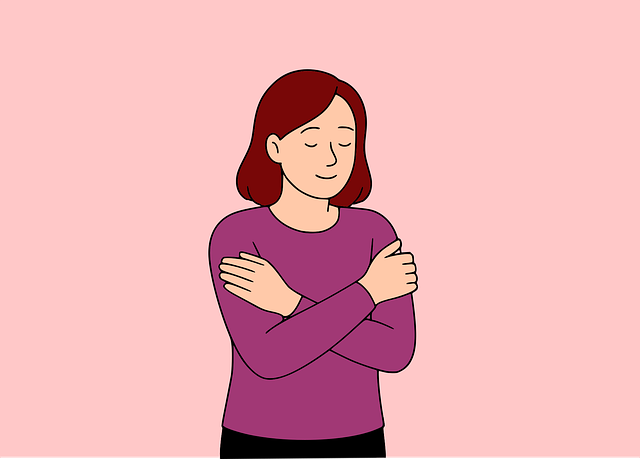Litleton Young Adults Therapy focuses on client safety through comprehensive risk assessment, utilizing evidence-based practices and Mind Over Matter principles. Their meticulous approach involves in-depth interviews, behavioral observations, and collaborative discussions to predict and prevent potential harms. Customized harm minimization plans are tailored to individual needs, combining personalized counseling with workshops for stress management and emotional regulation. Open communication, dynamic care, and regular assessments ensure strategies remain effective and aligned with the latest research. This holistic approach empowers young adults to overcome challenges, build resilience, and maintain long-term mental wellness.
In the realm of therapy, particularly at Littleton Young Adults Therapy, risk assessment and harm minimization planning are foundational elements for ensuring client safety. This comprehensive guide explores key aspects, starting with understanding risk assessment as a cornerstone of therapeutic safety. We delve into identifying potential harms through thorough evaluations, developing customized minimization plans tailored to individual needs, implementing effective strategies for safe environments, and continuously evaluating and adapting for long-term well-being. Each step is crucial in fostering a secure and supportive atmosphere at Littleton Young Adults Therapy.
- Understanding Risk Assessment: A Foundation for Safety in Therapy
- Identifying Potential Harms: A Comprehensive Approach at Littleton Young Adults Therapy
- Developing a Customized Minimization Plan: Tailoring Support to Individual Needs
- Implementing Strategies: Effective Practices for Safe and Therapeutic Environments
- Continuous Evaluation and Adaptation: Ensuring Long-Term Well-being
Understanding Risk Assessment: A Foundation for Safety in Therapy

Understanding Risk Assessment is a cornerstone in establishing a safe environment for therapy at Littleton Young Adults Therapy. It involves a systematic process of identifying potential hazards and evaluating their likelihood and impact, enabling therapists to implement effective harm minimization strategies. This foundational step ensures that the therapeutic journey prioritizes clients’ well-being by addressing risks proactively.
At Littleton Young Adults Therapy, we adhere to Mind Over Matter Principles, incorporating mindfulness meditation as a tool for both Depression Prevention and overall risk management. By fostering a culture of awareness and proactive intervention, our therapists create a supportive space where young adults can explore their challenges without fear of exacerbating existing conditions or encountering new ones.
Identifying Potential Harms: A Comprehensive Approach at Littleton Young Adults Therapy

At Littleton Young Adults Therapy, identifying potential harms is a comprehensive and meticulous process that forms the bedrock of their risk assessment strategy. Therapists meticulously explore various aspects of a client’s life, including mental health history, social environments, and personal experiences, to predict and prevent possible harm. This involves in-depth interviews, behavioral observations, and collaborative discussions with clients, fostering an atmosphere of trust and openness. By understanding the unique challenges faced by young adults, therapists can tailor interventions that go beyond addressing symptoms to promoting resilience building and inner strength development.
The approach at Littleton Young Adults Therapy emphasizes not just identifying risks but also equipping individuals with self-care practices to navigate life’s challenges. Through proactive harm minimization planning, clients gain practical tools to manage stress, regulate emotions, and seek support when needed. This holistic perspective ensures that young adults leave therapy equipped with the skills and confidence required to lead fulfilling lives while cultivating a strong sense of self-reliance.
Developing a Customized Minimization Plan: Tailoring Support to Individual Needs

Developing a customized harm minimization plan is an essential step in effective risk assessment, particularly for vulnerable populations like Littleton Young Adults Therapy clients. This tailored approach ensures that support and interventions are aligned with individual needs and preferences. Each young adult’s journey towards mental wellness is unique, shaped by their personal experiences, challenges, and strengths. A comprehensive plan must consider these nuances to be truly impactful.
At Littleton Young Adults Therapy, we recognize the importance of adapting our strategies for stress management and overall mental health support. Our organization offers more than just traditional therapy; we provide a range of services including interactive workshops that delve into Mind Over Matter principles, empowering young adults with practical tools for stress management. By combining personalized counseling with engaging educational programs, we create a holistic environment where individuals can thrive, navigating life’s challenges with resilience and self-care strategies suited to their specific requirements.
Implementing Strategies: Effective Practices for Safe and Therapeutic Environments

Implementing effective strategies is paramount for creating safe and therapeutic environments, especially in settings like Littleton Young Adults Therapy where fostering mental well-being is a core mission. Communication strategies play a pivotal role; open dialogue encourages clients to express their feelings and concerns, allowing therapists to provide tailored support. By actively listening and validating experiences, practitioners build trust, which is essential for vulnerability and progress.
Beyond communication, integrating evidence-based practices in risk assessment and harm minimization planning is crucial. This involves a comprehensive Mental Health Policy Analysis and Advocacy approach, ensuring that interventions are not only effective but also align with current mental health research. Strategies such as stress management techniques can empower young adults to cope with challenges, promote resilience, and ultimately enhance their overall well-being.
Continuous Evaluation and Adaptation: Ensuring Long-Term Well-being

At Littleton Young Adults Therapy, we recognize that mental health is a dynamic and evolving aspect of an individual’s life. Therefore, continuous evaluation and adaptation are integral to ensuring long-term well-being. Regularly assessing risk factors and changing circumstances enables our team to tailor support strategies effectively. By staying agile, we can respond promptly to emerging challenges and new insights from the field, enhancing the effectiveness of harm minimization planning.
This proactive approach is reflected in our Mental Wellness Podcast Series Production and Community Outreach Program Implementation. We believe that ongoing learning and adaptation are key to breaking down the barriers of mental illness stigma reduction efforts. Through these initiatives, we aim to foster an environment where young adults feel empowered to seek help, understand their risks, and make informed decisions for their mental wellness—all while maintaining a flexible strategy that evolves with them.
Littleton Young Adults Therapy (LYAT) emphasizes a holistic approach to risk assessment and harm minimization, where understanding risks is the cornerstone of safe therapeutic practices. By meticulously identifying potential harms and developing personalized minimization plans, LYAT ensures that each client receives tailored support. Effective implementation strategies and continuous evaluation foster a dynamic environment that adapts to changing needs, ultimately promoting long-term well-being for all clients. This comprehensive framework is pivotal in creating secure spaces for therapy, enabling positive outcomes and growth.











